Justice Under Threat: How Ukraine Can Protect Itself in 2025
In the eleventh year of the war, the demand for justice in Ukrainian society continues to grow.Unfortunately, the number of victims is steadily increasing, and so are expectations. This is especially true in the context of potential negotiations, which are currently being discussed with the return of Donald Trump to the White House. We have already seen attempts to pressure Ukraine in Istanbul to give up our legal claims. We can assume that this will happen again.
What can we do this year and what should we pay attention to so that justice does not become a victim of bargaining?
What awaits us in international courts
As of today, Ukraine has finally become a full member of the International Criminal Court (ICC). This is an important step that gives us new tools for investigating and prosecuting international crimes committed during the war. However, this also means that new demands will be placed on us—not only on the international stage but also within the country.
We have to implement the necessary legislative changes to be prepared to operate within the framework of the Rome Statute. This includes technical aspects, such as changes to criminal and criminal procedure laws, as well as a general understanding of how these tools can help us achieve justice. Without this, participation in the ICC risks remaining declarative.
Ukraine ratified the Rome Statute with the application of Article 124, which stipulates that a state, upon becoming a party to the Statute, may declare that, for a period of seven years after the entry into force of the Statute for the state concerned, it does not recognise the jurisdiction of the Court over war crimes if the alleged crime was committed by its nationals or on its territory. This contradicts our statements to the ICC from 2014-2015.And we still do not have an interpretation from the ICC as to whether it will be able to investigate international crimes committed on the territory of Ukraine or against Ukrainian citizens fighting on the Russian side since 2014. The Court's jurisdiction should not be limited to the Kursk region, which would turn out to be mostly against the Ukrainian military. That said, the ICC will have only a few cases, while most of the proceedings will remain in Ukraine. This should not be forgotten.
Additionally, over 20 countries have joined the investigation of the proceedings regarding the situation in Ukraine under the principle of universal jurisdiction. There may be interesting decisions there as well. For example, we are currently following a case in Finland, where the prosecutor's office is demanding life imprisonment for the commander of the neo-Nazi group "Rusich," Russian national Yan Petrovsky, who is accused of involvement in extrajudicial executions of 22 Ukrainian soldiers. This is the first case in Finland where charges have been brought for war crimes committed in Ukraine. This case highlights, on one hand, the critical importance of carefully collecting and preserving evidence, and on the other, the need to build an effective justice system that earns trust both within and outside the country.
As for the key international lawsuits, the International Court of Justice, the European Court of Human Rights, and maritime arbitration courts are expected to issue decisions that may affect the liability mechanisms. In particular, in 2025, we should receive a decision in one of the maritime arbitrations, which, among other things, may resolve the fundamental issue of the status of the Azov Sea.
As for the European Court of Human Rights,there is currently a case regarding systematic human rights violations in Donbas since 2014, as well as violations as a result of Russia's full-scale invasion. The interim decision on this case in 2023 confirmed the legal recognition of Russia’s full territorial control over those areas. However, we still have to wait for the final decision, and it is not at all certain that it will be in 2025.
What to pay special attention to
At the same time, we in Ukraine have the impression that Russia is inactive in international legal institutions. At least we do not see this in the Ukrainian media. But this is not the case at all. Russia has a whole system, a machine, working in this area. It has been working for a long time and in a well-coordinated manner, using existing mechanisms to legitimise its aggression.
While working in the prosecutor's office, I observed how Russia began to systematically record alleged "crimes" as early as 2014. The Investigative Committee of the Russian Federation has a specialised department for investigating "international crimes against civilians" and the Main Military Department.
Let me remind you that Ukraine only began systematic work only in 2016 on Crimea and in 2019 overall, creating the Department for Supervision of Criminal Proceedings on Crimes Committed in Armed Conflicts under the Prosecutor General’s Office (the "war department"). That means we have already lost valuable time and cannot afford to do so any longer. Every missed piece of evidence is an opportunity given to the enemy. Wearing rose-coloured glasses about Russia's capabilities means losing. At the moment, the Russian Investigative Committee is actively recording “events” in the Kursk region.
Ukraine’s large task in this context is to protect our heroes from possible charges of international crimes. The best protection here is a functioning mechanism for international humanitarian law in the Ukrainian Armed Forces. We simply cannot give the enemy grounds to accuse us by violating the laws and customs of war. Clearly, any misstep or ignoring of the problem will be used against us.
Moreover, analyzing how Russia has "spammed" all international institutions (the ECHR, ICC, OSCE, UN Human Rights Committee, and the Red Cross) with the gathered materials, I must say: the sooner we realize the seriousness of these threats, the better our chances of achieving justice.
For example, Russia has a position called "Special Envoy of the Russian Ministry of Foreign Affairs on Crimes Committed by the Kyiv Regime," currently held by former Ukrainian politician Rodion Miroshnik. Or let’s recall the trials of our prisoners of war, where the right to a fair trial is systematically violated. But this is an instrument for Russian propaganda alongside other non-legal tools they use following their "investigations," such as books, documentaries, feature films, and more.
In general, this approach may seem absurd to us, but in reality, it is a systematic policy. International courts are forced to analyze all presented materials, regardless of their nature. This is not only a challenge for us but also a reminder: we must be prepared for anything.
One example: recently, Russia filed a counter-memorandum in the ICJ case regarding genocide allegations. Let me remind you that the essence of Ukraine’s case against Russia in the ICJ is that Ukraine accuses Russia of imisusing the Convention on the Prevention and Punishment of Genocide to justify its aggression. Russia has repeatedly claimed that the invasion was necessary to "prevent genocide against Russian-speaking people in Ukraine." Ukraine denies these accusations, stating that they have no basis, and accuses Russia of using this false rhetoric as a pretext for illegal aggression.
Now the Court must consider all materials without exception, including the counter-memorandum, which likely discusses "genocide against Russian-speaking people." We will most likely learn more about the essence of this counter-memorandum of the Russian Federation in 2025.
The national legal system needs to be changed
So, having realised the seriousness of the threats and the fact that we have lost a lot of time, we need to act instead of relying on someone else. After all, the national legal system also faces enormous challenges. Since 2016, more than 180,000 international crimes committed on our territory have been registered. At the same time, it is important to understand that thousands of criminal proceedings can be opened, but unless the right strategy is chosen and real investigations are carried out, this will not lead to prosecutions. And now a large number of proceedings have not even been investigated.
Another equally important point. Ukrainian courts are already passing sentences on war crimes suspects. For obvious reasons, most of these sentences are passed in absentia. Will our warrants and sentences be enforced by other countries? Does our legal system inspire enough trust? Unfortunately, there is still work to be done. After all, reforming the national legal system is important not only for us, but also for the international community.
As for international crimes, I see the solution to these issues through the establishment of a fully-fledged specialised infrastructure: at the level of the prosecutor's office, courts and investigative bodies. Somewhat like with anti-corruption bodies. After all, even if we take the already mentioned ‘war department’ of the Prosecutor General's Office, it was an effective solution in 2019, but now, in 2025, we have a different scale of crime, so we need to make changes. Because hundreds of thousands of investigations are — let's be honest, work for years and decades. And we need it most of all.
We need to pay special attention to systemic violations of Geneva Convention IV (relative to the Protection of Civilian Persons in Time of War) in the occupied territories. Here we should ask ourselves: what is the goal of the Russian Federation? We can assume that in the occupied territories it is ‘legitimisation’ through the destruction of everything Ukrainian. This was the policy in Crimea, a similar one in Donbas, and it is repeated in other occupied territories. The only difference is that this policy has become even more widespread and harsh.
We need not only to understand what the occupation authorities want to achieve, but also to counteract their actions. We must work to ensure that the criminals do not go unpunished.
A future tribunal
In 2025, concrete steps could be taken to establish a special tribunal to prosecute the crime of aggression. At the same time, it seems most likely that it will be established on the basis of the Council of Europe. At least, public communication is limited to this option. However, in my opinion, it may have certain risks: a regional, not global, tribunal may strengthen Russian propaganda that promotes the narrative of a split between the West and the East.
In addition, the question remains whether this tribunal will be able to overcome the immunities of the “ruling trio” (president, prime minister and foreign minister), which is why the tribunal was originally planned to be created. But let's be honest, a European model that cannot convict Putin and that will not have jurisdiction over crimes that directly affected people is not what most Ukrainians expect.
The year 2025 will not be an easy one.
It will be a year when our efforts boil down to two crucial questions: are we ready to face reality, and will we take concrete steps to succeed in the legal arena? After all, we can be right a thousand times over, believe that justice is obviously on our side, and that we can be sincerely supported. But if we fail to substantiate this, we will lose this confrontation.
This leads to a logical conclusion: our country's international legal work must be systematic, sustainable, and built on the institutional capacity of relevant state bodies. All involved bodies should act on this track on the basis of a common strategy and work in a coordinated manner on the tactics of applying certain international legal mechanisms and instruments. It is strong institutions and their joint coordinated work that can produce the necessary results. Institutionalism should prevail over a personal approach.
No one, even the most professional individual specialists who may be involved in these processes at various stages may be, they cannot deliver the necessary results without the support of the relevant bodies or the real ability to influence the selection of tools within these processes.
Without a strategy, without consistency, without discipline and without a clear plan, we risk losing the most valuable thing - the trust of our society and the support of the international community. So it's time for us to take off our rose-coloured glasses and start reforming critical areas, including the legal sector. Even in the event of negotiations, we need to have really strong arguments and a principled position on the crimes committed on our territory. And so that we cannot rewind the clock.
Please select it with the mouse and press Ctrl+Enter or Submit a bug










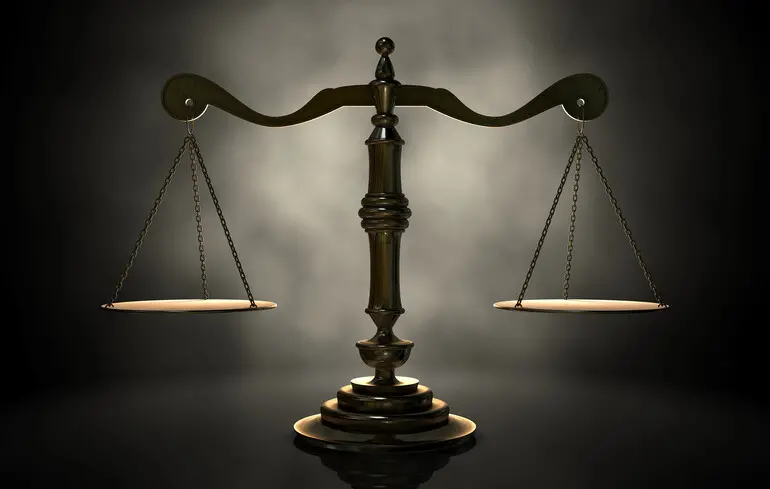
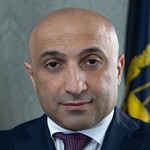
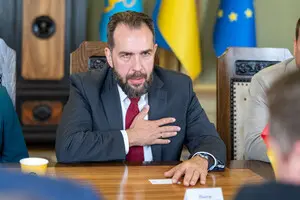
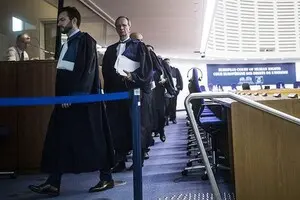
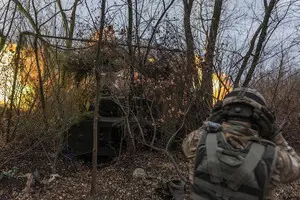
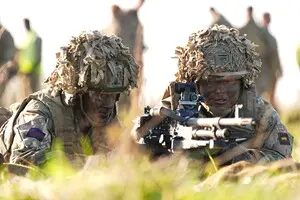

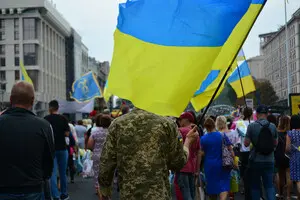
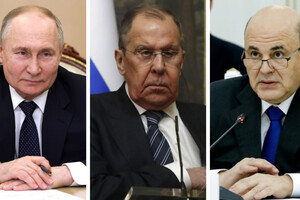
 Login with Google
Login with Google